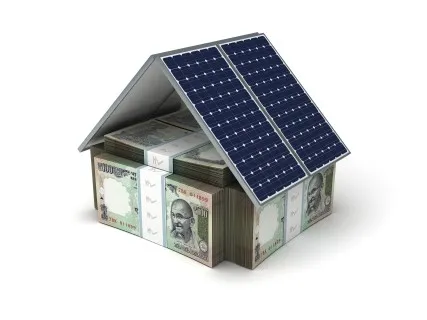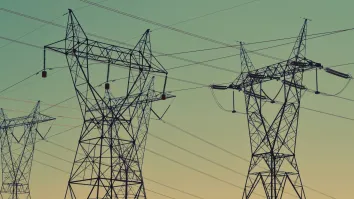
Pent up demand for projects results to record low bid in India's recent solar auction
The winning bid of ~$0.0487/kWh is 4.5% lower than the bid at REWA auction.
The solar tariff in India hit a new low with Solairedirect’s winning bid of Rs.3.15 (~$0.0487)/kWh, which was 4.5 percent lower than the Rs.3.30 (~$0.0494)/kWh (levelized over 25 years) quoted at the REWA auction in February 2017. According to Mercom Capital Group, the 250 MW project was tendered by NTPC for the Kadapa Solar Park under the open category in Andhra Pradesh.
Tariffs quoted ranged between a high of Rs.4.68 (~0.0723)/kWh – by Mahindra Renewables – and a low of Rs.3.15 (~$0.0487)/kWh. Canadian Solar and Ostro Energy also quoted tariffs below the four-rupee mark, but were unsuccessful.
This tender is an indicator for future auctions that Rs.3-3.50 (~$0.046-0.054)/kWh is the new normal. With this auction, NTPC has successfully awarded solar projects aggregating 3,000 MW as mandated under the National Solar Mission (NSM), Phase-II, Batch-2, Tranche-I (State Specific Bundling Program).
Here's more from Mercom Capital Group:
“There are several interesting aspects of the Kadapa auction. The winning low bid falling by close to five percent in 60 days is conceivable considering the continuing decline in module prices and the dollar exchange rate. But, it is interesting to see such a huge disparity between project developers as to what is an attractive winning bid for each of them,” said Raj Prabhu CEO of Mercom Capital Group.
Solairedirect told Mercom that the low bid was based on the fact that the transmission systems were almost complete, they would be using their own cells and modules, and NTPC has a history of paying developers on time. “If you compare the REWA tariffs to the rate that we have quoted for the first 10 years, you will see that the price is not that low. These prices are sustainable if the developer is confident, and NTPC has never delayed payments,” stated a source at Solairedirect.
While Ostro Energy’s bid was almost the same as Solairedirect’s, Canadian Solar’s bid was about eight percent higher. According to Mercom’s India Solar Project Tracker, Solairedirect has 215 MW under development (excluding the Kadapa Project) and 154 MW of installed projects. Canadian Solar and Ostro Energy have much smaller pipelines and installed capacity.
Ostro Energy was also confident in NTPC. “We knew payments would be on time,” commented a source at Ostro Energy about their bid. “Having the entire project located in one place, with good solar irradiation, and falling module prices were reasons why we bid so low,” added the source.
With the second-largest solar installed capacity in India and backed by sovereign wealth funds, Greenko bid almost 30 percent higher compared to the winning bid. Likely more cognizant of attractive returns than bidding aggressively just to build a pipeline, Azure, a public company, bid almost 40 percent higher. Adani, the third largest solar installer as of March 31, 2017, according to the Mercom's India Solar Project Tracker, bid 44 percent higher, and Mahindra Renewables, which has the seventh largest development pipeline, bid almost 50 percent higher.
The Kadapa auction shows that aggressive bidding in this case is more than just project economics as most of these projects can procure components at approximately the same price levels (or at least within a few points). It comes down to developers willing to give up returns to develop a pipeline. Tenders and auctions have slowed down over the past couple of quarters in India and bank guarantees are stuck and overheads are increasing. There is a huge pent up demand for large-scale projects as companies have invested and staffed up to meet India’s aggressive solar installation target but are not seeing the auctions.
Looking at project details, the project completion timeframe is 13 months from the date of signing the power purchase agreement, while REWA has 19 months. In fact, the Kadapa project needs to be completed four months before REWA. Both the REWA and Kadapa projects are the same size, so scale is not an issue. REWA had payment guarantees while Kadapa has NTPC, which is considered a safe offtaker.
We were expecting prices near Rs.3.50 (~$0.054)/kWh. If states and implementing agencies tweak their tenders effectively, solar costs can be brought at par with thermal throughout the country, added an NTPC official.
Module prices have fallen drastically over the past year and the evacuation infrastructure is being developed, which led to such low bids, said an official at the Andhra Pradesh Solar Power Corporation.



















 Advertise
Advertise





